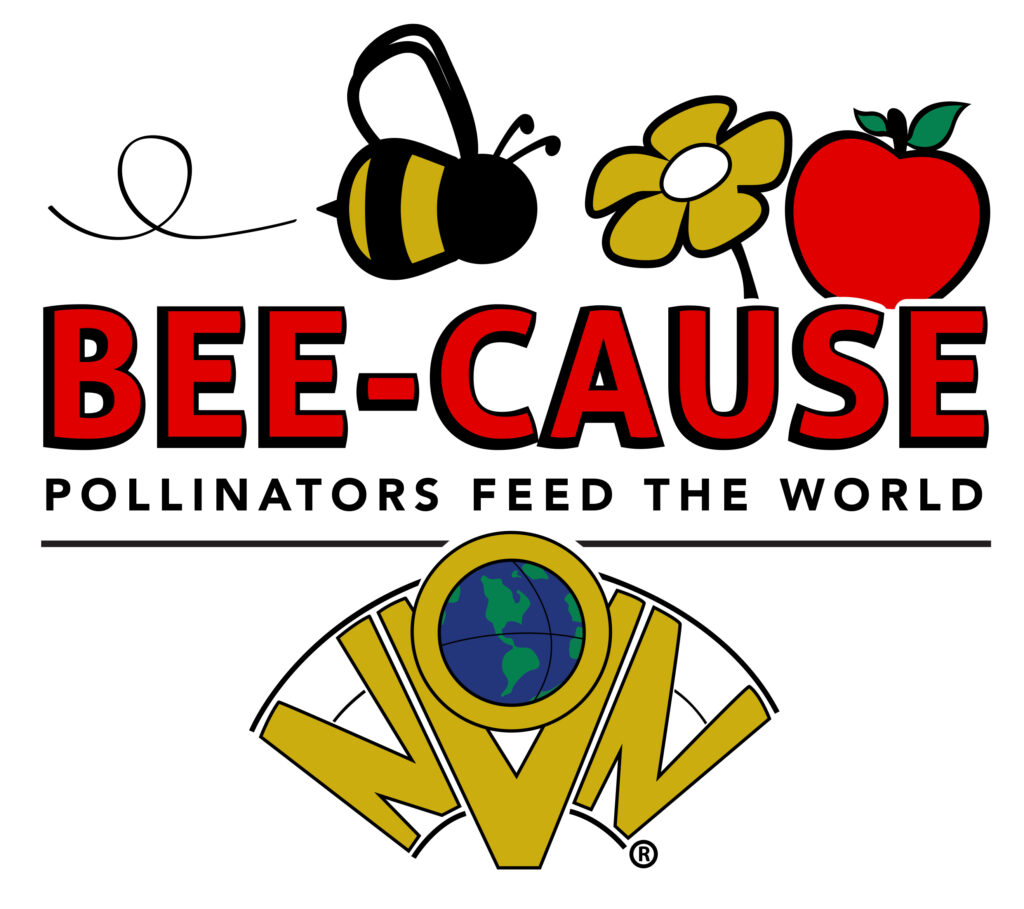
The 2022-2025 Project in Common is “BEE-CAUSE Pollinators Feed the World”, an international project. It is a project designed to inform people about all kinds of pollinators and promote the importance of pollinators of all kinds. The collection of funds generated through this project are to go to a number of bee-keeping organizations and international aid societies that promote pollinator and animal production. This project was designed to support Resolution #16 Pollinator Protection as well as resolutions supporting healthy eating, environment, and local, national, and international farming practices.
Associated Country Women of the World 2019-2022
Resolution 16 POLLINATOR PROTECTION
Be it resolved that ACWW societies and members urge their governments and research institutes to continue to identify and reduce specific drivers of insect pollinator decline, develop agricultural pollinator-friendly practices, and promote greater public awareness of the role of insect pollination in global food production.
As of December 2024, we have sent Heifer International $16,429. With their additional matching funds, we were able to send 1,675 bee hives at $30.00 each, to be purchased for underprivileged women in Central America.
By donating $1 per member, you are helping others. If all NVON members donate $1 it would mean there would be $32,000 sent to Heifer International WHICH Heifer International will double for the purchase of a honeybee gift. Your donations should be sent to NVON Treasurer, Harlene Welch, 207 59 Street, Cynthiana, KY 41031. Thank you for participating in the $1 per member for Bees Program. A reporting form can be found on the NVON website. https://www.nvon.org/bee-cause-pollinators-feed-the-world.
Check out the 2023 BEE-CAUSE Reports to see what we have accomplished this year.
Pollination Fast Facts
What is pollination?
Pollination is a vital stage in the life cycle of all flowering plants. When pollen is moved within a flower or carried from one flower to another of the same species it leads to fertilization. This transfer of pollen is necessary for healthy and productive native & agricultural ecosystems.
Approximately 75% of all flowering plant species need the help of animals to move their heavy pollen grains from plant to plant for fertilization.
About 1,000 of all pollinators are vertebrates such as birds, bats, and small mammals.
Most pollinators (around 200,000 species) are beneficial insects such as flies, beetles, wasps, ants, butterflies, moths, and bees.
Why are pollinators important?
Pollinators are often keystone species, meaning that they are critical to an ecosystem. The work of pollinators ensures full harvests of crops and contributes to healthy plants everywhere.
An estimated 1/3 of all foods and beverages are delivered by pollinators. • In the U.S., pollination produces nearly $20 billion worth of products annually.
How you can help.
Reduce your impact. Reduce or eliminate your pesticide use, increase green spaces, and minimize urbanization. Pollution and climate change affect pollinators, too.
Plant for pollinators. Create pollinator-friendly habitat with native flowering plants that supply pollinators with nectar, pollen, and room for nesting. For information on what to plant in your area, download a free eco-regional guide online at pollinator.org/guides.
7 Things You Can Do For Pollinators
BEE-CAUSE Pollinators Feed The World Brochure
BEE-CAUSE Report Form
Bee Identification Guide
Honey Bees Sweeten a Family’s Financial Future
Nutrient Profile of Honey
Pardon the Weeds
Pollination Fast Facts Educators Students
Pollination Fast Facts Farmers Ranchers
Pollination Fast Facts Food Industry
Pollination Fast Facts Gardeners
Pollination Fast Facts General
Pollinator Friendly Cooking
Pollinator Landscape Ideas
Pollinator Poster
